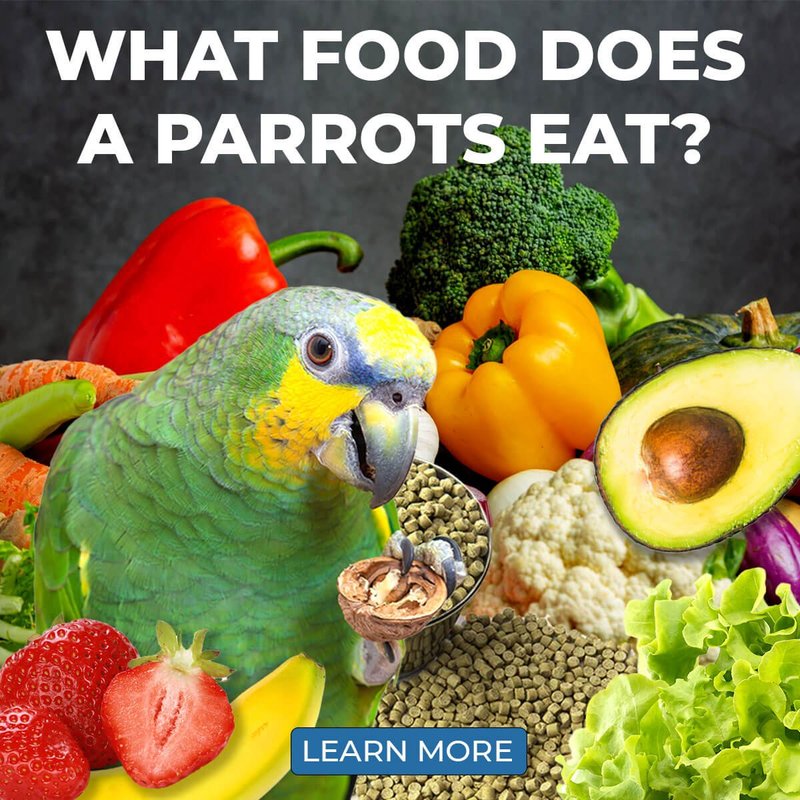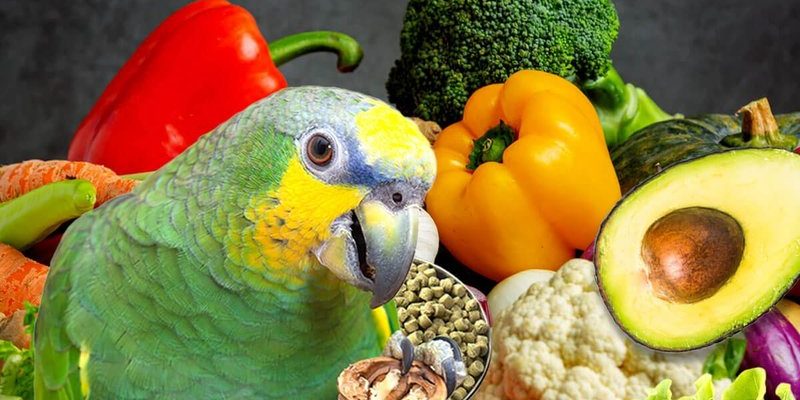
Think of parrots as the gourmet eaters of the bird world. Their diets can be rich and varied, and what you feed them can greatly impact their mood, energy, and overall well-being. You’re probably wondering, “What should I actually feed my parrot?” Don’t worry—I’m here to break it all down for you. We’ll talk about the best foods, a feeding schedule that works, and tips to keep your parrot thriving.
Understanding Parrots’ Nutritional Needs
Every parrot species has unique dietary needs, but they all have some things in common. Parrots are generally herbivores, which means they primarily eat plants. They need a balanced diet that includes fruits, vegetables, seeds, and pellets. Think of it like a colorful plate filled with various foods to keep their energy up and their feathers shiny.
In the wild, parrots munch on seeds, nuts, fruits, and flowers. These foods not only offer energy but also provide essential vitamins and minerals. If you’ve ever seen a parrot enjoying a fresh snack, you know how much they savor each bite. That’s why it’s crucial to replicate this in captivity, giving them the best chance at a healthy life.
So, what exactly makes up a parrot’s ideal diet? It includes:
- Fruits: Apples, bananas, berries, and grapes are favorites.
- Vegetables: Leafy greens, carrots, and bell peppers provide essential nutrients.
- Pellets: High-quality pellets should be the primary portion of their diet.
- Seeds and Nuts: A small amount of these can be a tasty treat but shouldn’t dominate their diet.
Best Foods for Parrots
Choosing the right foods for your parrot doesn’t have to be overwhelming. Let’s break down some of the best options to keep your feathered pal happy and healthy.
Pellets are often recommended as a staple in a parrot’s diet. Unlike seed mixes, which can be low in nutrients, pellets are formulated to provide a well-rounded diet. Look for brands that have natural ingredients without artificial colors or preservatives. Honestly, it’s like feeding your parrot a daily multivitamin, giving them everything they need in one go.
Next up are fruits and vegetables. Fresh produce is essential for hydration and nutrition. For fruits, go for options like:
- Apples: A crunchy treat full of vitamins.
- Berries: Blueberries and strawberries are packed with antioxidants.
- Mango: A tropical delight that many parrots enjoy.
When it comes to veggies, keep things fresh. Leafy greens like kale or spinach are great, along with carrots and bell peppers. Just remember to wash everything thoroughly and chop them into manageable pieces.
Lastly, nuts and seeds can be given as treats but should be offered sparingly. Think of these as “dessert” for your parrot. Almonds, walnuts, and sunflower seeds can make a tasty reward, but too many can lead to obesity.
Establishing a Feeding Schedule
Creating a feeding schedule for your parrot is pretty straightforward, but it’s crucial for both your routine and your bird’s health. Parrots thrive on consistency. Here’s a simple way to structure it:
1. Morning: Start their day with fresh pellets and a serving of fruits. This gives them energy to kick off their day.
2. Midday: Offer a mix of veggies. You might notice your parrot getting excited around lunchtime—this is a great time to engage with them and let them try new foods.
3. Evening: Treat them to nuts or seeds as a little bedtime snack. Remember, it’s not a full meal, just a treat!
Keeping this routine helps establish good eating habits. Plus, it keeps you in sync with what your parrot prefers. You might be wondering how much to feed them. Generally, a good rule of thumb is about 1/4 to 1/2 cup of pellets a day, plus a small serving of fruits and veggies.
Common Foods to Avoid
Just as there are healthy foods for your parrot, there are also things you definitely want to steer clear of. Some foods can be harmful or even toxic. Here’s a quick list to help you out:
- Avocado: This can be toxic and should be avoided altogether.
- Caffeine: Coffee and tea can be harmful to parrots.
- Chocolate: This is a no-go for all pets; it’s toxic to many animals, including birds.
- Alcohol: Just like us, it’s best to keep it away from our feathered friends.
By keeping these foods out of reach, you can ensure your parrot remains happy and healthy. If you’re ever unsure about what’s safe, it’s best to do a quick search or consult with an avian vet.
Monitoring Your Parrot’s Diet
Once you have a feeding schedule in place, it’s good practice to monitor what your parrot eats. This helps you catch any dietary issues early. Are they picking out their favorite seeds and leaving the pellets behind? This could be a sign that they need more variety.
Watch for signs of a healthy diet, too. A well-fed parrot usually has vibrant feathers, clear eyes, and a playful attitude. If anything seems off, like changes in their droppings or behavior, it might be time to tweak their diet or consult a vet.
Also, always keep fresh water available. Hydration is key! Change their water daily to keep it clean, just like you would for yourself.
Tips for Introducing New Foods
Here’s the thing: parrots can be picky eaters. If you’re looking to switch up their diet or introduce new foods, take it slow. Start by mixing in small amounts of a new item with their regular food.
Try offering new veggies or fruits at different times of the day. Maybe your parrot responds better to goodies served in the morning versus the afternoon. You can even try different preparation methods—some parrots may prefer their veggies steamed instead of raw.
It’s also a good idea to observe their reaction to new foods. If they turn their beak up at something, don’t take it personally! It may take several tries before they warm up to new flavors. You might feel like a chef experimenting in the kitchen, and that’s okay!
Feeding your parrot isn’t just about filling a bowl; it’s about creating a balanced and varied diet that keeps them vibrant and energetic. With the right mix of high-quality pellets, fresh fruits, and veggies, your parrot can thrive. By establishing a consistent feeding schedule and being mindful of what to include and avoid, you’re helping your feathered friend live their best life.
So, next time you’re at the store, think about how you can stock up on a healthy variety of foods. After all, a happy parrot is a well-fed parrot!

